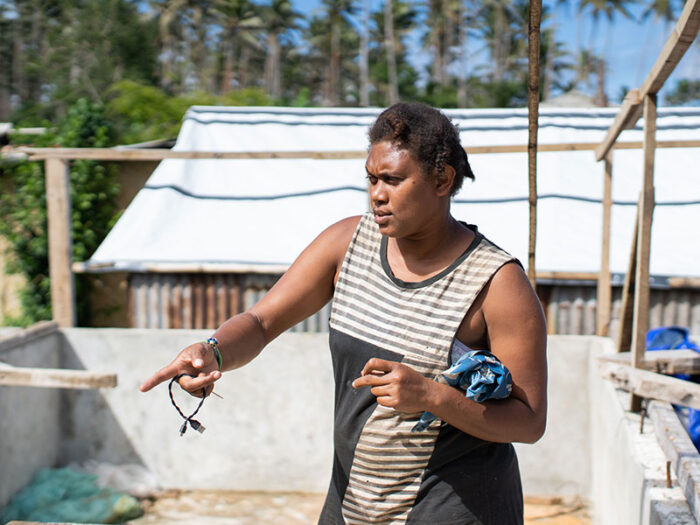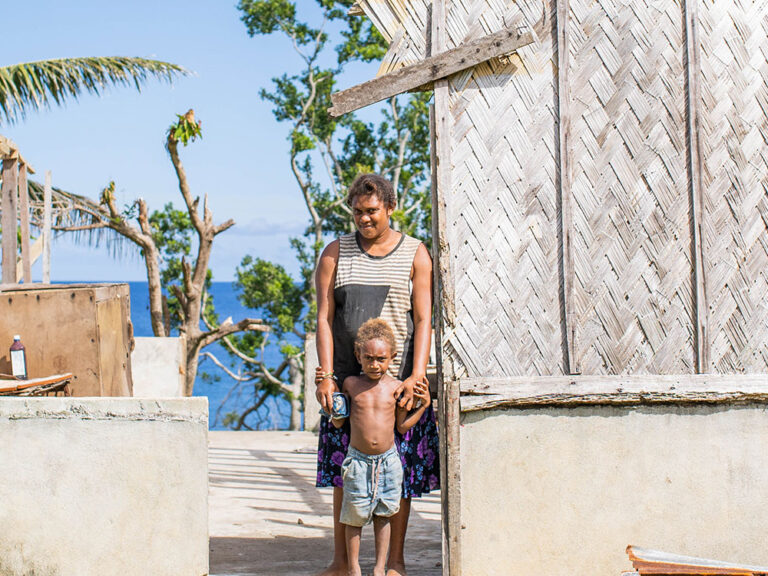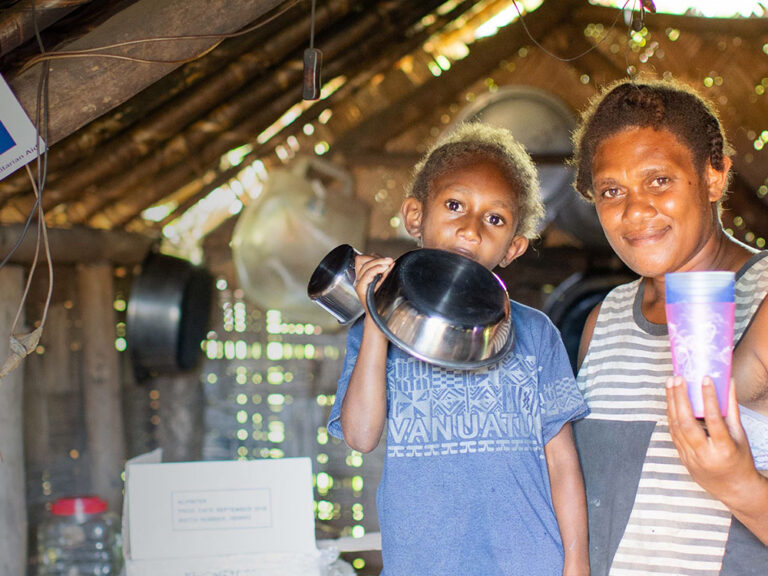“We hid our children under the bed,” said Shelley as she pointed to the remains of the room where she had tried to shelter her children.
When Cyclone Harold hit the small pacific islands of Vanuatu in 2020, it decimated homes, gardens and anything else in its path.
Shelley’s family were one of 2,000 households who received ShelterBox aid after the storm. Read her story here.
Not your average cyclone
Tropical Cyclone Harold made landfall on April 6th 2020.
It was just getting dark on Pentecost Island when the residents realised this was not your average cyclone. As the eye of the storm passed directly over them, the adults of Hotwota worked together in a desperate attempt to hold down their homes.
Shelley and her neighbours sheltered together in one house.
As the children hid under the bed their eyes kept watching the roof. The men in the group tried to hold it down, but the force of the wind was so strong it lifted their feet off the ground.
Eventually they knew they had to let it go. Like a wave, the roof peeled back across the house until it was completely gone.
The house where they had taken shelter was now disintegrating into debris around them. After a brief scouting mission, one of the young men found Shelley’s kitchen still intact and the group decided to relocate.
Earlier in the evening Shelley had reinforced the natungura thatched roofing of her kitchen with pieces of cloth, tying the beams to fixtures on the ground. The effort had paid off.
But as Shelley and her community huddled shoulder to shoulder in her kitchen, the cyclone raged on. A flying piece of tin roofing smashed a hole in one of the walls. Every adult who was not holding a child or heavily pregnant was holding on to the house.
“When the wind came, I was shouting ‘Hold on! hold on! hold on!’” It went on like this till daylight.”

A strategy for rebuilding
“In the morning, the boys started to make a house. They said the boys will sleep here and the girls sleep down there. We were joking and saying, ‘we are in secondary school, the dormitory of the boys over there and the dormitory of the girls over there’.”
Together as a community they agreed to these temporary sleeping arrangements and a strategy for rebuilding their lives.
“We will sleep here and one day we will rebuild the house of one person, the next day we will work on the house of another.”
The women worked in the gardens, carrying back any salvageable food and cooking meals for the group. The men worked on the houses, creating new frames, nailing in posts and finally attaching broken bits of salvaged tin roofing.
ShelterBox aid arrives
Thanks to the incredible generosity of our supporters, we were able to provide shelter for 2,000 families in Pentecost.
The shelter kits were packed with all the essential tools and equipment that people needed for home repairs and basic shelter.
Shelley sings praise for the donated tarpaulins that now afford her family a dry night’s sleep.
“When the tarpaulins came…it made life easier for us, because we only had broken natungura from the cyclone.”
“We have used all the nails to fix the houses,” explained Shelley, “because that’s what we needed the most, together with the tin snips.”
Shelley and her community also received tool kits. Approximately 70% of Vanuatu’s population work as subsistence farmers, whose livelihoods depend on their garden produce.
“Because you gave the spades, shovels, all those things it means we were able to rebuild our houses. And now the houses are finished we can go and work in our gardens,” said Shelley.
“Thank you very much to all those that gave everything to give to us. We are so happy that you have helped our village after the cyclone.”


